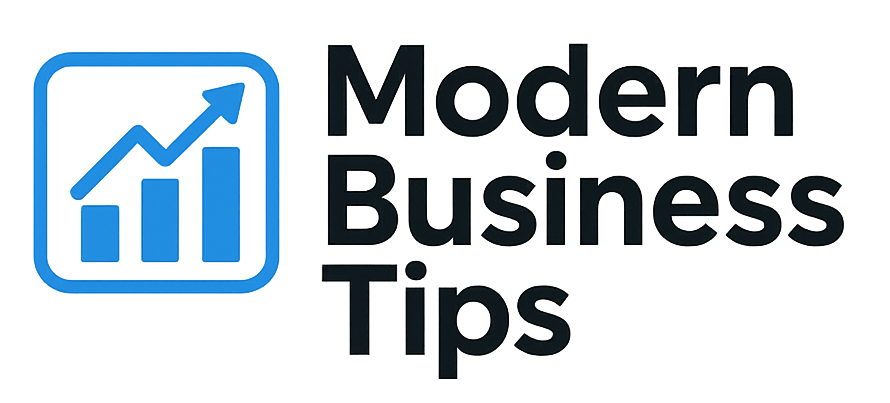Ever wondered why some companies seem to run smoothly while others lag behind? In today’s fast-changing world, using AI tools for business is not just a trend. It’s a must. Companies are using these tools to work better, automate tasks, and find important insights in big data.
In this article, we’ll look at five AI tools that are making a big difference in how businesses operate. They help teams be more innovative and succeed in their areas of work.
Key Takeaways
- Understanding AI tools is essential for modern business success.
- AI can significantly boost operational efficiency.
- Specific tools are tailored to enhance specific business functions.
- Digital transformation requires intentional implementation of AI solutions.
- Choosing the right AI tool impacts future growth and scalability.
Introduction to AI Tools in Business
In today’s fast-paced world, knowing about AI tools in business is key. These advanced technologies change how companies work and plan in many fields.
What Are AI Tools?
AI tools are software that use artificial intelligence to help businesses grow. They use machine learning and other smart methods to solve problems. Companies can use these tools to analyze data better, automate tasks, and improve how they talk to customers.
Importance of AI for Businesses
Using AI tools is now a must for companies wanting to stay ahead. With AI, businesses can quickly look through lots of data, find new insights, and connect better with customers. This makes them more efficient and saves money, helping them stand out in the market.
How AI Can Improve Efficiency
AI makes things more efficient by taking over routine tasks and helping make quick, smart choices. For example, it can make processes smoother, so teams can do more important work. AI also gives insights into market trends and finds new chances for growth, helping companies stay strong in a changing world.
| Aspect | Description | Example |
|---|---|---|
| Machine Learning | Allows systems to learn from data and improve their performance over time. | Predictive analytics in sales forecasting. |
| Natural Language Processing | Facilitates interactions between computers and human language. | Customer service chatbots. |
| Automation Technology | Streamlines processes reducing the need for human intervention. | Email marketing automation. |
Tool
AI tools are now key to how businesses work. I want to show you some top resources that have changed many industries. Each tool has special features that make predictive analytics and business intelligence better. Knowing how to use them can help businesses get better results.
We will look at five important AI tools. They show how AI can help in different ways. From helping with marketing to making customer service better, these tools are very useful. As we go through each one, I’ll talk about why it’s important to pick the right tool for your business.
1: Salesforce Einstein
Ever wondered how some companies seem to know exactly what customers want? It’s often thanks to AI tools like Salesforce Einstein. This platform uses automation to change how businesses work. It helps companies make smart choices based on data, improving how they connect with customers.
Salesforce Einstein gives insights on sales, customer behavior, and marketing. It automates tasks and makes things easier for users. Let’s see how it can take your business to new heights.
Key Takeaways
- Salesforce Einstein uses predictive analytics for smart decisions.
- It boosts customer management and marketing plans.
- Automation makes routine tasks easier.
- It greatly improves productivity and user experience.
- Helps companies stay ahead in the market and meet customer needs.
Tool
The world of digital transformation tools is always changing. Smart analytics platforms play a big role in how businesses work. Tableau is one such tool that works well with Salesforce Einstein.
Tableau helps turn complex data into easy-to-understand insights. It lets users make interactive dashboards. This makes it easier for teams to work together and make smart choices.
Tableau also connects well with other smart analytics tools. This gives a full view of how a company is doing. It helps users understand customer behavior, improve operations, and plan for the future.
Tableau is also easy to use. This means employees can work with data without needing to be tech experts. This is important as companies use digital tools to stay ahead in today’s quick world.
2: HubSpot
Ever wondered how top companies seem to know what you want before you do? HubSpot leads this change with advanced artificial intelligence. It creates top-notch marketing, sales, and customer service platforms.
HubSpot uses predictive analytics to make customer experiences personal and improve lead scoring. This means businesses can focus on the best leads. It also boosts sales funnel efficiency, leading to higher conversion rates.
Key Takeaways
- HubSpot integrates AI into marketing and sales strategies.
- Personalizes user experience through tailored content.
- Enhances lead scoring to prioritize quality leads.
- Optimizes sales funnels for improved conversion rates.
- Utilizes predictive analytics for better customer insights.
- Streamlines customer service with AI-driven tools.
Tool
HubSpot is a top choice for companies looking to boost efficiency and streamline operations. It integrates well with many apps, making it key in digital transformation tools. With HubSpot, businesses can improve their marketing, sales, and customer service.
The platform has strong features like CRM, email marketing, and social media management. These help track customer interactions well. This lets businesses tailor their messages, building stronger client relationships. Plus, HubSpot’s analytics help companies make smart decisions based on data.
Using HubSpot can help meet digital transformation goals. It’s flexible, working for both small startups and big companies. This tool helps predict customer needs, make processes smoother, and drive growth.
| Feature | Description | Benefits |
|---|---|---|
| CRM System | Centralizes customer data for better accessibility. | Enhances customer relationships through personalized outreach. |
| Email Marketing | Creates targeted email campaigns using automation. | Increases engagement rates and improves ROI. |
| Analytics Tools | Measures performance metrics across various channels. | Informs strategic adjustments based on data insights. |
3: Slack with AI Integrations
Ever thought a simple messaging app could change your team’s game? Slack is now a powerhouse with AI tools that change how we work together. It offers smart reminders and chat interfaces, making it more than just a messaging app. It’s a smart helper for your team.
Let’s see how these tools can make your work smoother. They help keep everything on track in today’s busy world.
Key Takeaways
- Slack’s AI integrations enhance team collaboration and productivity.
- Smart reminders and task management features keep teams organized.
- Conversational interfaces streamline communication among remote teams.
- Using AI tools for business in Slack can reduce operational inefficiencies.
- Advanced analytics technologies in Slack help in monitoring team performance.
Tool
Slack has become key for businesses wanting to improve communication. It works well with many tools and services, making work easier. With automation, Slack helps save time and resources by automating tasks.
It also brings business intelligence right into your chats. This means teams can make decisions based on real-time data. It helps employees focus on important tasks, not just routine ones.
4: Zoom.ai
Ever thought about how much time you could save by automating simple meeting tasks? Zoom.ai, the AI-powered meeting assistant, is changing how we manage our schedules. It uses smart technology to make scheduling easier and to handle calendar invites and find important information.
Imagine spending more time on important tasks while Zoom.ai handles the daily chores. Let’s see how this tool can boost your productivity and efficiency.
Key Takeaways
- Zoom.ai automates administrative tasks, saving significant time for professionals.
- Utilizes cognitive computing applications to enhance scheduling efficiency.
- Integrates smoothly with popular conferencing solutions.
- Helps employees focus on strategic tasks instead of routine activities.
- Offers an intelligent approach to manage calendar invites effortlessly.
Tool
Zoom.ai is a top choice for businesses wanting to boost their efficiency. It works well with many corporate systems, making it a key tool for automating tasks and improving workflows. Zoom.ai helps with scheduling meetings, managing tasks, and handling documents, all of which boost productivity.
Zoom.ai also uses predictive analytics to help companies make better decisions. By analyzing data, businesses can spot trends and plan ahead. This mix of automation and analytics keeps companies quick to adapt and ahead of the competition.
5: Jasper
Ever wondered how some brands create engaging content so easily? It makes you think if your writing is good enough. Jasper, a top AI tool for business, is changing how we make content. It uses natural language processing to create top-notch marketing copy and blog posts.
This software is designed to meet your audience’s needs. As I dive into Jasper’s amazing features, I’ll show you how it keeps your brand’s voice consistent. It also boosts your content marketing game.
Key Takeaways
- Jasper streamlines content creation across various platforms.
- Natural language processing enhances the relevance of generated outputs.
- Maintaining brand voice is achievable with Jasper’s customized features.
- It serves as an effective solution for SEO-driven content strategies.
- Businesses can increase their productivity by utilizing Jasper’s AI technology.
Selecting the Right AI Tool for Your Business
Choosing the right AI tools for your business is a big decision. It’s important to think about what your company needs. You should also consider your budget and how the tool will grow with your business.
Assessing Business Needs
Knowing what your business needs is key. Each AI tool does something different. Knowing what you want to achieve will help you pick the right one.
Budget Considerations
When picking an AI tool, look at the cost. You want to get the most for your money. Make sure the tool’s features are worth the price.
Scalability and Future Growth
AI tools should grow with your business. Choose tools that can change with your needs. This way, you won’t have to replace them later.
Implementing AI Tools Successfully
Using AI tools in business can change how things work, making things more efficient and innovative. To make it work, I follow a clear plan. This plan focuses on important steps for a successful setup.
Steps for Effective Implementation
Getting AI tools to work well in a business needs careful planning. Here are the main steps:
- Defining clear objectives aligned with business goals.
- Selecting the right AI tool that fits the specific needs of the organization.
- Engaging stakeholders from various departments to ensure buy-in and diverse perspective.
- Providing thorough training to staff to help them use the tool well.
Ensuring Employee Buy-In
Getting employees on board is key for a smooth transition. I make sure to be open about the benefits of AI tools. This builds trust and makes employees more open to change.
Measuring Success and ROI
To see if AI tools are working, we need to set goals. I focus on creating metrics that show how well the tools are doing. This helps make sure the technology is really helping the business.
Challenges of Using AI Tools
Using AI tools comes with its own set of challenges. Knowing these can help in dealing with the complexities of AI. Misconceptions, barriers to use, and privacy worries are big hurdles. Overcoming these can lead to successful AI adoption.
Common Misconceptions About AI
Many people have wrong ideas about AI’s abilities. This leads to high hopes that AI can’t meet. Teaching teams about AI’s true capabilities helps. This way, businesses can adopt AI more effectively.
Overcoming Implementation Barriers
Change resistance is a big issue with AI adoption. Employees might feel unsure or scared about new tools. Giving them good training and support helps. This ensures everyone can use the new systems well.
Addressing Privacy Concerns
Keeping data safe is key in today’s digital world. As AI tools are used, following privacy rules is essential. Strong security builds trust and keeps data safe. This lets companies use AI without risking data security.
The Future of AI in Business
The world of AI is always changing, and it’s key to keep up with these changes. Machine learning tools are set to change how businesses work, making them more efficient and innovative. Knowing what’s coming can help companies get ready for the future.
Emerging Trends to Watch
New advancements in machine learning and natural language processing are exciting. These trends will let companies use data in new ways. This means they’ll get better insights and smarter solutions.
Predictions for AI Tool Development
AI tools are expected to become more accessible to all businesses. Even small companies will be able to use advanced analytics. This could make the market more competitive, with everyone using data to make smart decisions.
How Businesses Can Prepare
Companies should invest in training their staff to keep up with AI. Learning about new tech makes current tools work better and prepares for new ones. Being proactive is key to adapting to AI’s fast-changing world.
Conclusion
Looking back, AI tools have changed how businesses work. They make operations smoother, help make better decisions, and offer deep insights. These tools are key in today’s fast-paced business world.
Recap of the Impact of AI Tools
AI tools are very important. They make things more efficient, help businesses grow, and let them quickly adjust to market changes. Their use shows how they can improve and create new ways to engage with customers.
Final Thoughts on Embracing AI
As business keeps changing, using AI tools is vital for staying ahead. I think companies should use these technologies wisely to succeed in our digital age. This way, they can be ready for future challenges and use AI to its fullest.



